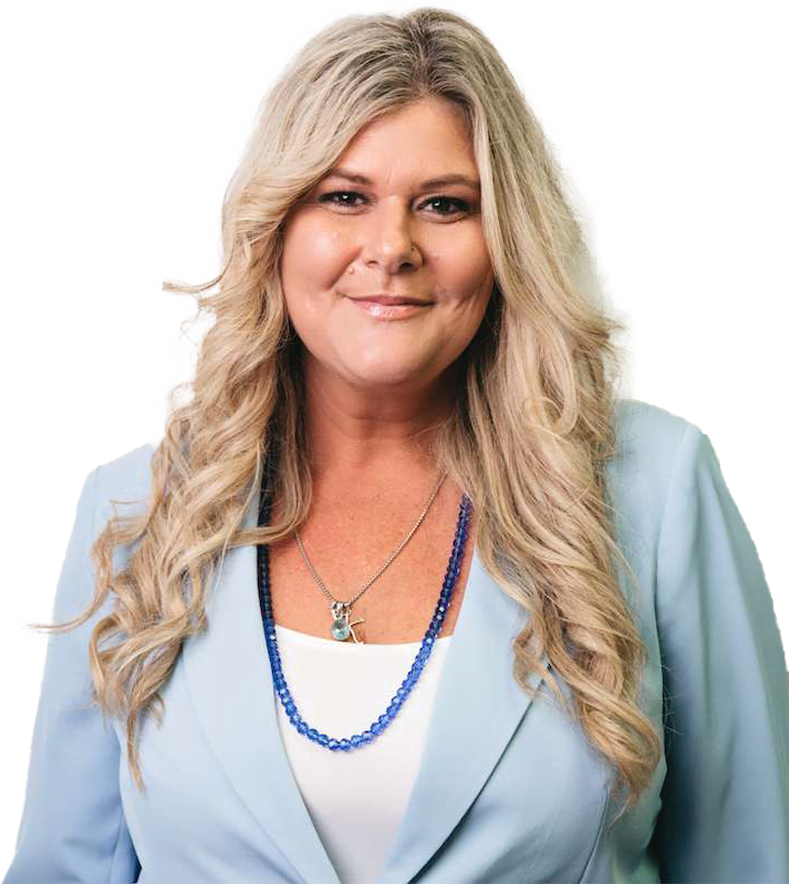Renting is a tough gig. There is limited security, freedom and always feeling as though you are living at the whim of your landlord. Which is why I think the super for housing policy will spark interest in some.
For as long as I can remember, all I wanted was to buy a home.
As I got older, the property prices increased, as did the cost of living, and with it my anxiety and fear that I would never own my own home.
This brought with it, all kinds of unwanted feelings including inadequacy and failure.
Considering this, I understand why on the surface the Super-for-housing Policy announced by Scott Morrison last weekend might seem like a great opportunity.
Appealing to all age groups, shining a light on a possible way to get into your own home sooner than you ever thought, will no doubt excite many.
In my line of work, I see people overextended financially all the time, often through no fault of their own. A change in circumstances changing what they could once easily afford, into an extremely heavy burden to bear.
We all know we are living in crazy, volatile, unpredictable times. So, let’s break this proposed policy down and take a deeper look at the true cost…


Super-for-housing; campaign policy
Allowing first homeowners to use up to $50k of their superannuation as a deposit to get into the property market.
It appears the intended target of this campaign policy are our mystical millennials. Due to the meteoric rise of housing prices combined with a comparative lack of wage growth, aspirations of home ownership in younger generations are less than dim. Realistically, without a big charitable donation from the Bank of Mum and Dad, the idea of saving up for the median housing deposit of $300,000 in Sydney is simply out of reach.
And then along comes a giant carrot dangled in front of them, which if taken up will only serve to push them further out of their financial comfort zone into an extremely vulnerable situation as the cost of living continues to rise.
Let’s break it down…
Super for housings: Pro and cons
Super for housing will drive up property prices
According to THE SYDNEY MORNING HERALD
“The use of super savings would drive up property prices by 16 per cent in Sydney, 9 per cent in Melbourne, 8 per cent in Brisbane and 14 per cent in Perth.”
During the pandemic property prices rose significantly. Leaving many like myself who were finally ready to buy, in a predicament. Either buy a small, over-inflated property in your local area, or move out of the city and start over. Remembering to consider all the additional expenses that comes with relocating.
This means buying in an area that you are likely not familiar with, away from your community and everything and everyone you know, using money taken from your superannuation (ultimately costing your future self, financial security) in a competitive property market with an underlying FOMO (Fear of Missing Out). Certainly not a strong foundation to enter home ownership.
Uncertainty on the horizon
What if …
- Interest rates rise to 5% or 6%; how much will my mortgage repayments become?
- Something happens and I can’t afford to pay my mortgage anymore?
- The house I buy needs repairs and I can’t afford it?
- The property market drops, you need to sell and have to sell at a loss – where does that leave you?
- The cost of living continues to increase and making ends meet becomes near impossible?
The full amount of equity won’t be available to you on sale of the property.
The idea behind the super for housing scheme is that, if and when you sell your property, you return the money you initially ‘borrowed’ from your superannuation + some capital gains to make up for the lost superannuation earnings. I guess it is good in theory, but from where I am sitting, there are far too many variables to this equation.
Way back in early 2020 at the start of the pandemic, we were told to expect an unprecedented recession. We braced for an apocalyptic economic collapse and waited… and waited. Yes, business owners suffered terribly throughout the pandemic. But as the lockdowns ended the average Australian wiped their brow and said “Whew, that wasn’t so bad!”. Well we may have celebrated prematurely and the chickens might just be coming home to roost.
According to CNN
“Businesses are being challenged on so many fronts right now and CEOs have elevated expectations of a recession”
If you were unfortunate enough to use a large chunk of your super to purchase a house, and then lose the house in a recession. You would not only lose the super that you withdrew, but you would also sacrifice the hundreds of thousands in compounding earnings you would have earned if you had left your super intact.
Even in the event that you manage to keep the house, in one way or another, your needs will change and you will likely outgrow the space. What you think you will have as equity, won’t be yours for the keeping as you will be required to return the super which you withdrew and more. This could lead to issues if you are needing a bigger (and more expensive) place for your growing family.
Super for housing weakens the sole purpose of Superannuation
I have for the most part been self-employed. So, Superannuation has always been a bit of an enigma to me, probably because I didn’t have any until I started my company Debt Angel Solutions.
I have always had this feeling in the pit of my stomach knowing that if I wasn’t successful, given I had no superannuation, I was going to find myself in a very compromised position in my retirement.
I now know the importance of Superannuation and see how much of it I pay my staff on a monthly basis and know that it is there, building in the background for them & their future. Which even though it is out of sight, it gives them peace of mind.
According to FINANCY
“Super is meant to be for people’s retirement, not supercharging house prices and pushing the home ownership dream further away.”
Bottom Line, Superannuation is meant to be for people’s retirement. With the proposed Super-for-housing; campaign policy, chances are things will go wrong as they do, and many won’t be able to repay their superannuation let alone pay back more. Inevitably leaving them in an extremely vulnerable mental and financial position.
How it could affect generations to come
According to THE SYDNEY MORNING HERALD
‘The Financial Services Council, which represents retail super funds, warned the move would undermine retirement savings.’
I look at my kids, who are now 13 and 15 and I wonder what kind of world they will be living in when it comes time for them to retire.
Imagine someone who uses their superannuation (or most of it). They still have a mortgage, with who knows how much interest being added monthly. They possibly have a handful of unsecured debts which they have only been paying the interest on for years. As the cost of living has risen so much, they now have no extra money.
Their lifestyle and financial commitments won’t allow them to survive on just the pension.
It is then I predict that companies like mine (Debt Angel Solutions) will receive more and more SOS calls asking, “How do I retire before I am 100”?
We can help people stuck in this situation
Sadly, how to negotiate your way out of debt isn’t common knowledge. Because people don’t know what to do, they become ashamed or embarrassed, often carrying the burden if financial distress on their shoulders for far longer than they need to.
They feel they “shouldn’t be in this position at their age.” This can then lead to illness, both physical and mental.
This makes me sad and mad, as it doesn’t need to be this way!


Super-for-housing; campaign policy Summary
The main concerns with this proposed policy are:
- People becoming overextended financially
- Market uncertainty
- Rising inflation
- Increased cost of living
- Inflated property prices (we all know what goes up must come down), and;
- People who have already accessed early-release superannuation during the pandemic and are now being given the opportunity to deplete it even further
What kind of future are we moving into if we continue to spend our future security; buying houses with it, remaining cash poor and struggling to pay off old debt when we are barely able to make ends meet due to circumstance changing, being financially overextended and increased cost of living?
I ask you this…
Isn’t retirement meant to be about doing what we love, with who we love and when we want to, without the limitations of work or cashflow?
It is up to each one of us to empower and set the future generations up for success. If we don’t future-proof ourselves and the generations to come, then what is it all for?
Just because something looks and sounds good, doesn’t mean it is…
The most important thing before you make ANY BIG FINANCIAL CHOICES IS… to know your numbers…
If you want to discuss your situation and what alternatives might be possible, please feel free to reach out.
Kitty xx




